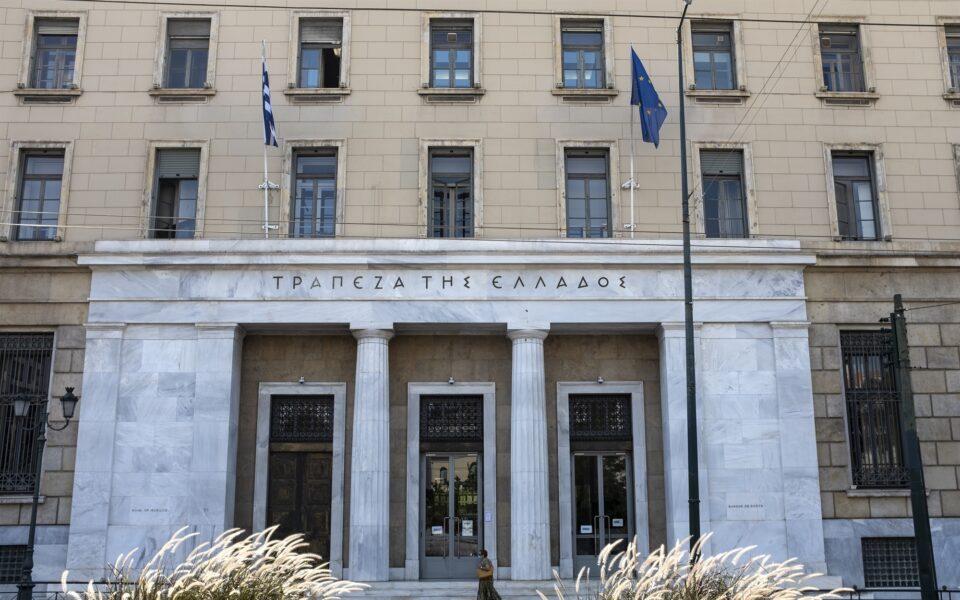The road to restoring Greece’s A credit rating
BoG: Reduce debt ratio, strengthen economic resilience, improve governance indicators

A significant reduction in the debt ratio, the strengthening of economic resilience, and improvement in Greece’s governance indicators are the three essential steps required for the country to fully normalize and regain an A credit rating, as it had before the debt crisis, thus aligning with the average credit rating of eurozone economies. This analysis comes from the Bank of Greece.
Although Greece recently reclaimed a BBB- rating, the lowest investment-grade rating, it still remains several levels away from the A+ rating it held around 15 years ago in 2007-2008. Given the typical pattern of rating agencies, achieving this milestone would likely take at least 10 years.
In its interim report on monetary policy, the Bank of Greece highlights that upgrades to Greece’s investment category result from prudent fiscal policies, economic recovery, and better-than-expected macroeconomic and fiscal performances.
Specifically, institutional improvements, especially the increasing interval since the public debt restructuring, have contributed 1.25 rating notches, while enhancements in macroeconomic indicators and public finances have added approximately 1 additional notch to the rating.
The gradual repayment, ahead of schedule, of debts to official creditors, including the International Monetary Fund (IMF) and the Greek Loan Facility (GLF), has mitigated the negative impact of external parameters by about 1 notch. In total, these developments in credit rating parameters explain upgrades exceeding 3 notches from 2017 to 2023.
The Bank of Greece emphasizes the goal for Greece’s sovereign credit rating to converge with the average eurozone economy rating of A+, the rating it held before the debt crisis. This convergence necessitates realizing forecast macroeconomic and fiscal performances, especially in reducing public debt and strengthening the resilience of the Greek economy, along with aligning Greece’s governance indicators with the eurozone’s average.
To achieve this, continued prudent fiscal policy and boosted economic growth rates will contribute to reducing the public debt-to-GDP ratio. For instance, a 30-percentage point reduction in debt, from the expected 159% of GDP at the end of 2023 to 129% of GDP, could improve the rating by approximately 1 notch, achievable by the end of 2026 according to rating agencies such as Standard & Poor’s (S&P).
Additionally, reducing GDP volatility could lead to an upgrade of approximately 1.5 notches. Financial flows through the Recovery and Resilience Facility (RRF) are deemed crucial for enhancing resilience.
Therefore, a combination of reducing public debt as a percentage of GDP and enhancing economic resilience could raise Greece’s sovereign credit rating by at least two notches to BBB+. However, achieving A+ requires additional improvements in parameters such as institutional indicators, which significantly impact credit ratings by diffusing benefits into economic activity.
Among these institutional parameters, the most crucial is improving Greece’s ranking in the Worldwide Governance Indicators published by the World Bank. Aligning Greece’s governance indicators with the average rank of eurozone economies could add an additional 1.5 levels. Substantial room for improvement is identified in indicators such as “Political Stability and Absence of Violence,” “Rule of Law,” and “Control of Corruption,” pushing Greece’s rating above the A level.





